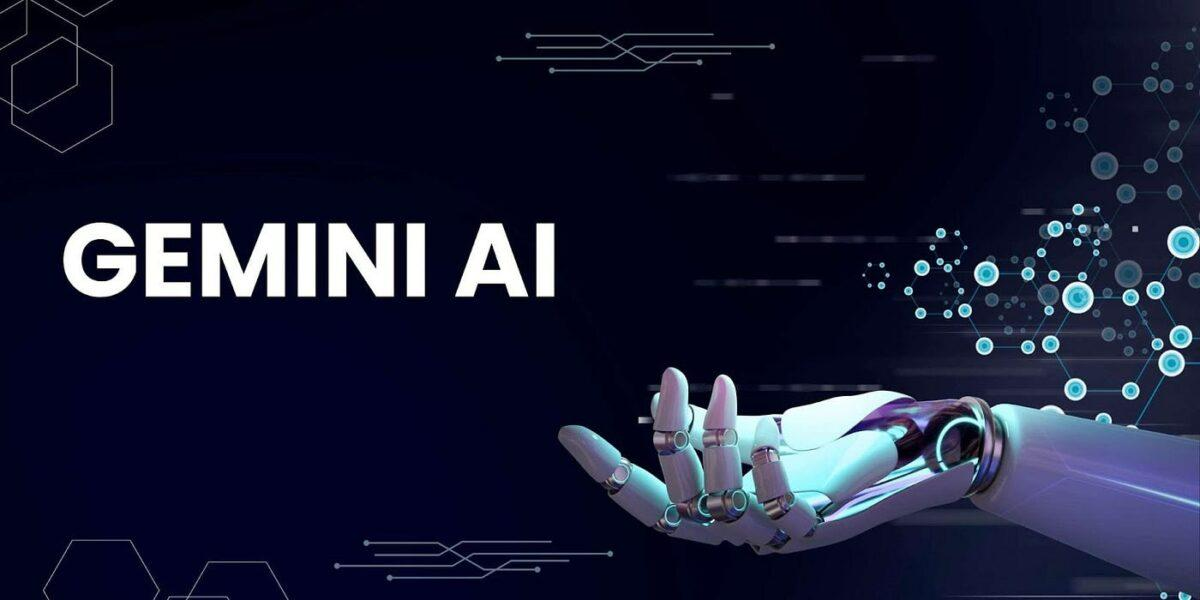In the rapidly evolving world of AI, Google has made a significant splash with the release of its new large language model (LLM) called Gemini.
Following in the footsteps of other notable LLMs like ChatGPT and LaMDA, Gemini promises to push the boundaries of what’s possible with AI. But what exactly is Gemini AI, and how does it differ from other LLMs on the market?
What is Gemini AI?

Gemini AI is a factual language model from Google AI, trained on a massive dataset of text and code. It is designed to be informative and comprehensive, able to answer your questions in an informative way, even if they are open-ended, challenging, or strange.
Google’s CEO Sundar Pichai shared Gemini AI’s Capabilities in an X(formerly Twitter) post recently:
Gemini is still under development, but it has learned to perform many kinds of tasks, including:
- I will try my best to follow your instructions and complete your requests thoughtfully.
- I will use my knowledge to answer your questions in a comprehensive and informative way, even if they are open-ended, challenging, or strange.
- I will always be professional in all my responses. I will not use colloquial terms. I will avoid bro language.
- I will generate different creative text formats of text content, like poems, code, scripts, musical pieces, emails, letters, etc. I will try my best to fulfill all your requirements.
Gemini AI is available in three versions:
- Gemini Nano: This is the smallest and lightest version of Gemini, designed for on-device tasks like text summarization and smart replies.
- Gemini Pro: This is the middle-ground version of Gemini, designed for a wider range of tasks, including translation and code generation.
- Gemini Ultra: This is the largest and most powerful version of Gemini, designed for highly complex tasks like research and development.
What are the benefits of using Gemini AI?
There are several potential benefits to using Google’s Gemini AI, including:
- Increased productivity: Gemini AI can automate many tedious tasks, freeing up your time to focus on more important things.
- Improved accuracy: Gemini AI can be used to check your work for errors and inconsistencies.
- Enhanced creativity: Gemini AI can help you brainstorm new ideas and generate creative content.
- Better communication: Gemini AI can help you communicate more effectively by providing you with accurate and up-to-date information.
What are the challenges of using Gemini AI?

As with any new technology, there are some challenges associated with using Gemini AI, including:
Bias: Like all AI models, Gemini AI is susceptible to bias. This is because it is trained on a massive dataset of text, which may contain biases that are reflected in the model’s outputs.
Misinformation: Gemini AI can be used to generate fake news and other forms of misinformation. It is important to be critical of the information that you receive from AI models and to verify it before sharing it with others.
Job displacement: The rise of AI models like Gemini has the potential to displace human workers in some industries. It is important to develop policies and programs to help workers transition to new jobs.
Overall, Gemini AI is a powerful new tool that has the potential to revolutionize the way we live and work. However, it is important to be aware of the challenges associated with using this technology and to use it responsibly.
In addition to the information above, here are some additional resources that you may find helpful:
Google Gemini AI website
Techopedia article on Google Gemini
Google AI blog post on Gemini AI
Gemini AI is a powerful new tool with the potential to revolutionize many aspects of our lives. However, it is important to be aware of the challenges associated with using this technology and to use it responsibly.

Leave a Reply